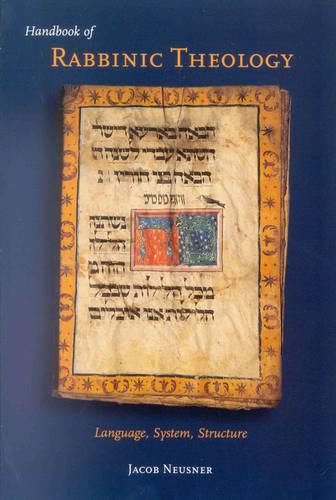Readings Newsletter
Become a Readings Member to make your shopping experience even easier.
Sign in or sign up for free!
You’re not far away from qualifying for FREE standard shipping within Australia
You’ve qualified for FREE standard shipping within Australia
The cart is loading…






From his extensive and intensive study of the Rabbinic literature, Jacob Neusner shows how Rabbinic documents give expression to a very real, if implicit, theological system. While the Rabbinic literature is often seen as a collection of miscellaneous responses to questions arising from study of the Hebrew Bible and its application to contemporary life, Neusner sees a system behind and embodied in the various writings. He discusses the ways in which the divine thought, and the human thinking that sought faithfully to interpret it, actually came to expression and treats what he calls the grammar of the divine self-expression in order to help us see the theological structure that it implies. Then he shows how this implicit system is expressed in the rules for the life of the people that God has chosen as his own. Citing passages from almost all of the mishnaic tractates, Neusner shows how they fit into and give expression to the system.
$9.00 standard shipping within Australia
FREE standard shipping within Australia for orders over $100.00
Express & International shipping calculated at checkout
From his extensive and intensive study of the Rabbinic literature, Jacob Neusner shows how Rabbinic documents give expression to a very real, if implicit, theological system. While the Rabbinic literature is often seen as a collection of miscellaneous responses to questions arising from study of the Hebrew Bible and its application to contemporary life, Neusner sees a system behind and embodied in the various writings. He discusses the ways in which the divine thought, and the human thinking that sought faithfully to interpret it, actually came to expression and treats what he calls the grammar of the divine self-expression in order to help us see the theological structure that it implies. Then he shows how this implicit system is expressed in the rules for the life of the people that God has chosen as his own. Citing passages from almost all of the mishnaic tractates, Neusner shows how they fit into and give expression to the system.